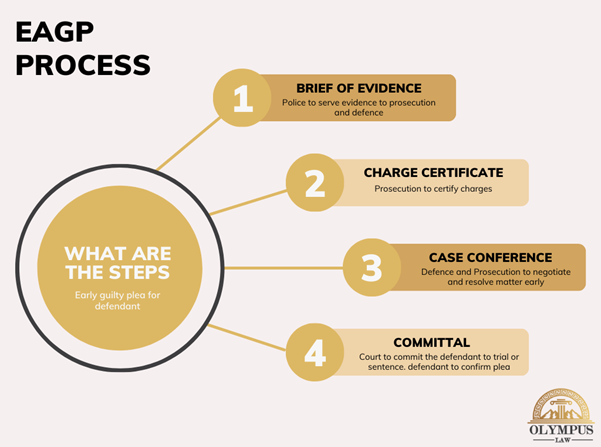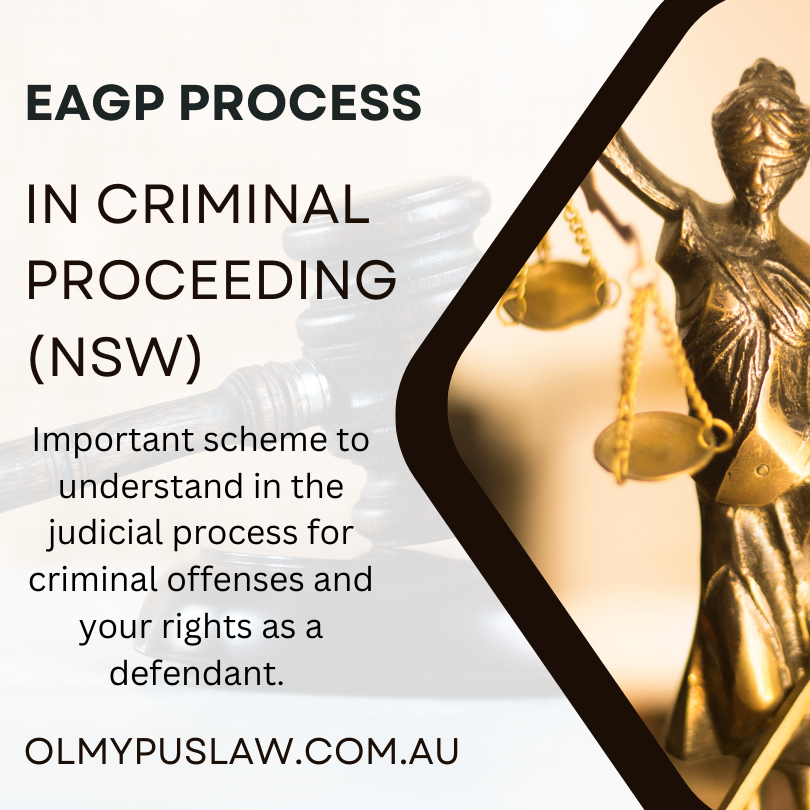Important scheme to understand in the judicial process for criminal offenses and your rights as a defendant.
What is EAGP?
In 2018 the NSW government introduced the Early Appropriate Guilty Pleas (EAGP) scheme to ease the pressure in courts and preserve the limited resources that exist within the legal system.
This scheme encourages the defendant to plead guilty in the early stages of court proceedings with the reward of a sentencing discount.
Sentencing caps on guilty pleas:
- 25% if you plead guilty in the local court before it proceeds to a higher court
- 10% if you plead guilty in the higher court but this has to be up to 14 days before the first trial date
- 5% if you plead guilty less than 14 days before the trial is scheduled to begin or during commencement of the trial.
As shown above the defendant is presented with many chances to consider a guilty plea and benefit from the scheme. However, judicial discretion also applies here as sentencing discounts may be refused or lessened in some extreme cases.
What are the steps?
Overview of the EAGP Process

How does each step work (incl. waiting period)
Step 1: Brief of Evidence
This stage occurs when an individual has been arrested and charged by the police. Once charged the accused will be handed their court attendance notice which lists the first court date (a mention) of judicial commencement. During the mention, the police (prosecution) are obliged to serve a form of their evidence to the Director of Public Prosecutions (DPP) and Defence (lawyer and accused).
- Waiting Period
At this stage the court will adjourn the matter for 8 weeks to allow the brief of evidence to be served in preparation for the second court date.
Step 2: Charge Certificate
Occurring after the 8 week adjournment, the parties will inform the court on brief status, if evidence was served or any brief items are missing.
Assuming the brief contains all the evidence the prosecution deems necessary for the prosecution to prove the charges, the matter will progress to charge certificate. The charge certificate requires the DPP to certify the charges made by the prosecution by reviewing the brief of evidence and confirm which charges are suitable and best support the evidence. Some charges may be dropped during this evaluation.
- Waiting Period
The court will adjourn the matter for 6 weeks to give the DPP time to certify the charges.
Step 3: Case Conference
Once the charge certificate has been filed, the court will order that parties involved in the matter participate in a case conference.
A case conference is a meeting where the defense and DPP negotiate and work to attempt to resolve the matter early, if possible. This stage is usually where appropriate pleas and offers are shared, accepted or rejected on the offences listed in the charge certificate.
- Waiting Period
The court will adjourn the matter for 8 weeks in order for a case conference to be conducted by both parties. However, the case conference should take place within the first 6 weeks as there can be more than one held. This is stated to ensure the case conference certificate is completed and filed by the next court date.
Step 4: Committal
At this final step, the parties will inform the courts on whether an appropriate guilty plea was agreed upon. The accused will state whether they plead ‘guilty’ or ‘not guilty’ during this stage. This will determine if the accused will be committed to a sentence or trial in the District Court.
- Waiting Period
Adjournment to the district court takes up to 1- 4 weeks.
How can we help?
Have you been charged for a criminal offence and don’t know what steps to take?
We are here to help you understand the options available to you as a defendant and what works in the best interests of your matter.
Disclaimer: This is commentary published by Olympus Law Partners Pty Ltd is for general information purposes only. This should not be relied on as specific legal advice. You should seek your own legal and other advice for any question, or for any specific situation or proposal. The content also is subject to change.
Find more useful knowledge about your concerned topics at our Knowledge Hub.



